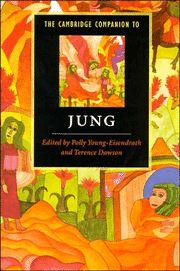1 - The historical context of analytical psychology
from Part 1 - Jung's ideas and their context
Published online by Cambridge University Press: 28 May 2006
Summary
Considered by many (e.g. Ellenberger, 1970; Rychlak, 1984; Clarke, 1992) the most original, broadly educated, and philosophical of the depth psychologists, Jung inhabited a specific era whose scientific thought and popular culture formed the bedrock out of which analytical psychology developed. It is only recently that analytical psychology has been examined within this historical perspective which reveals Jung's key position as a major figure in psychology and the history of ideas. Henri Ellenberger's (1970) reassessment of Jung stood alone for many years; among the growing number of recent scholars, J. J. Clarke (1992) and B. Ulanov (1992) track the pivotal place Jung's ideas occupied in the philosophical discourse of his time; W. L. Kelley (1991) considers Jung one of the four major contributors to contemporary knowledge of the unconscious; Moacanin (1986), Aziz (1990), Spiegelman (1985, 1987, 1991), and Clarke (1994) explore Jung's relation to Eastern psychology and religious thought; while Hoeller (1989), May (1991), Segal (1992), and Charet (1993) trace Jung's gnostic, alchemical, and European mystical roots.
- Type
- Chapter
- Information
- The Cambridge Companion to Jung , pp. 17 - 34Publisher: Cambridge University PressPrint publication year: 1997
- 4
- Cited by

